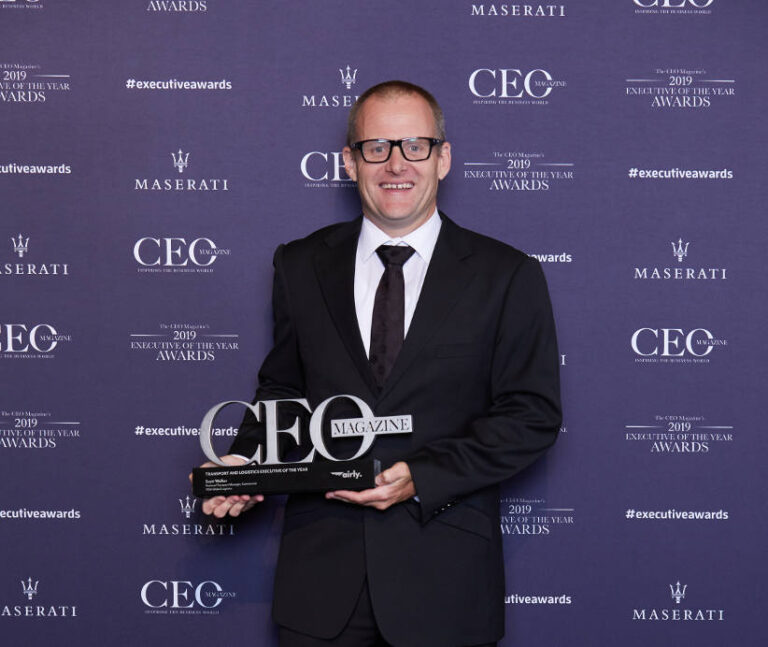Scott Walker, national transport manager, at VISA Global Logistics, is a winner of many awards over his career, most recently being named co-winner of CEO Magazine’s transport and logistics award. In 2019, Walker also won Road Freight NSW Top Technical and Safety Award.
Walker looks after some nine intermodal facilities around Australia, 150 drivers and a fleet of some 600 transport assets, including specially designed units such as trailer combinations that reduce environmental impact and improve customer payloads. Walker spent several years lobbying to gain permits to operate the so-called high-productivity vehicles for VISA Global. The 50 HPVs VISA Global now operates nationally enable reduced truck movements, and savings on labour, fuel and toll costs.
It’s the sort of thing that’s helped VISA Global rack up more than $500 million in revenue and open new offices around the world, including two in the US in 2019.
VISA Global started as a boutique freight forwarder between Italy and Australia in the 1980s in Sydney’s Five Dock, by founder Vittorio Tarchi. It has a lot of offices in Italy, and all up 59 around the world. “We are today the biggest freight forwarder on the planet between Italy and Australia,” said Walker. VISA Global is the third biggest wharf cartage carrier in Australia.
“Our biggest selling point as a freight forwarder is our own trucking fleet and our own in-house logistics software which we designed and started building in 2002. It’s called OneTrack. It gives our customers a lot of power, a lot of information. It’s the freight forwarding coupled with our own trucks and OneTrack that’s a game changer for the industry,” said Walker.
More on the OneTrack system: It’s a purchase order management system that can be used anywhere on the globe, right through to sign-on glass proof of delivery. “There’s no black holes in the chain,” said Walker.
Walker is also behind development of an in-truck tablet technology that looks after chain of responsibility details. Drivers do a pre-start check, a fit-for-duty check, as well as mass management. “It’s something our drivers have to do everyday and it gives us a much greater compliance,” said Walker.
Looking ahead, Walker said the biggest changes and challenges he sees coming include developments in technology of autonomous trucks and how that is going to play out in the freight forwarding industry. Another is the shrinkage of empty container parks. “The empty container parks are are shrinking so that is becoming difficult to manage within our own industry,” said Walker. He cited rising property prices, particularly in Sydney. “The land is so valuable and empty container are not valued. They’re getting smaller for various reasons, and in the future it will become a big problem, a bottleneck.”
And as always there’s the ongoing challenge the weather presents to a the business. Stormy, windy and extreme heat conditions can cause container parks and ports to shut down facilities for safety reasons.
‘’This happens around all of Australia once it gets to a certain heat, or certain windy conditions, it’s not safe to operate within that terminal environment,” said Walker. “When it gets so hot, there’s a safety aspect for people being out in those hot environments. When you get into storm season, although shipping containers are very big and heavy, they can come down from stacks, so it’s safer to shut terminals down from time to time.”
Sure, it makes things difficult, having to rearrange all the work, notify all the customers, and find work for the trucks.
“You have to keep the wheels in motion if it’s safe to do so,” said Walker, ending our interview with words of enthusiasm for the industry — ever changing, demanding, busy, fantastic.






